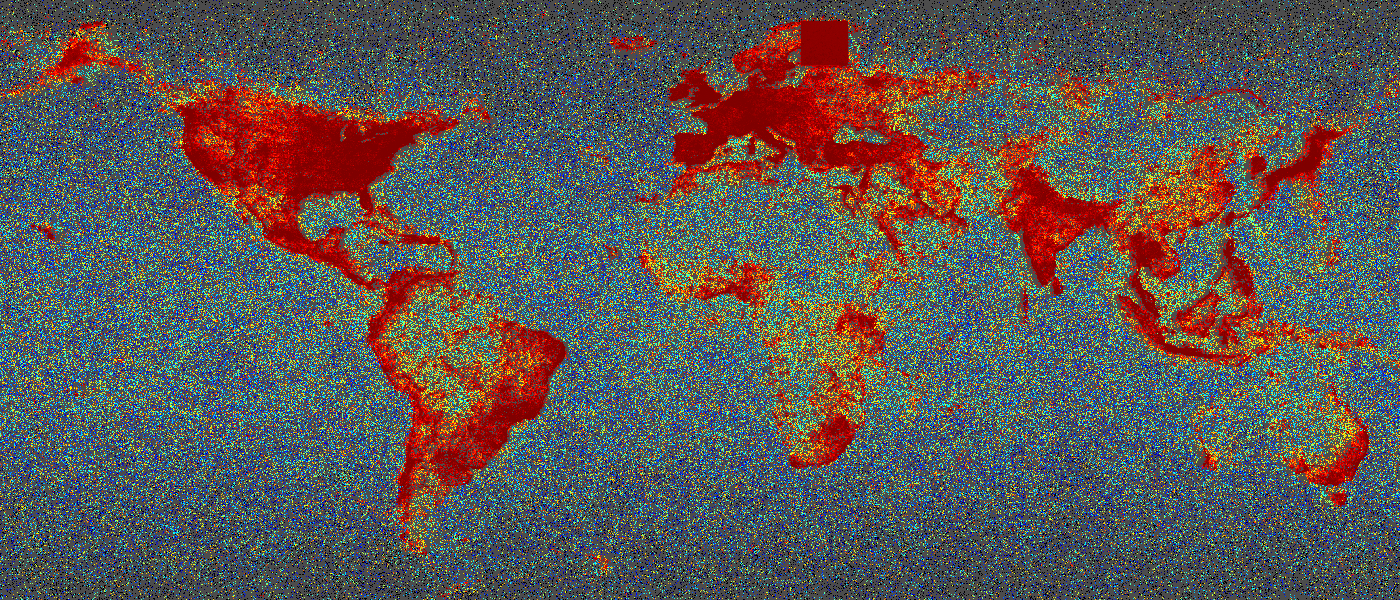- Dichte von Twitter-Nachrichten von etwa 200 Millionen Nachrichten gefärbt nach Radius der Umgebung der nächsten Nachbarn.2019, M. Werner

Projekte an der Professur für Big Geospatial Data Management
Projekte
- Interdisciplinary Center for Applied Machine Learning
The Interdisciplinary Center for Applied Machine Learning aims at increasing the accessibility of machine learning across disciplines. Therefore, we conduct courses and events, collect and comment information, and provide a flexible platform for machine learning inside the browser.
We acknowledge the funding from the Federal Ministry of Education and Research.
| LEITUNG: | Martin Werner, Franz Rottensteiner, Monika Sester |
| TEAM: | Artem Leichter, Dennis Wittich, Monika Sester, Franz Rottensteiner, Martin Werner |
| JAHR: | 2017 - 2019 |
| FÖRDERUNG: | BMBF (details) |
libTrajcomp
Trajectory computing is a subarea of spatial computing in which the spatial objects are continuous movements in space. In this context, trajectories are stored as sequences of timestamped spatial points and thus share some conecpts with time series. However, trajectories are much richer than time series as they allow for interpolation. In common trajectory models, a linear interpolation between two consecutive timestamped points is defined to be the location of the mobile object during the timespan between both points. We have been doing research in this area for a long time and some of the algorithms of this area are both complicated and very sensitive to low-performance platforms such as Java, Python, or MATLAB. Therefore, we collected quite some algorithms from the field of trajectory computing with clean, generic C++11 implementations agnostic of the data type. In addition, some of these algorithms are provided in form of Python packages, R packages, or example programs in C++.
Currently, we are working on a first major release libTrajcomp 1.0 which shall not only include a significant number of trajectory computing algorithms in efficient implementations, but as well be published both as an R package and a Python package that users can install directly from the relevant repositories to foster the use of these algorithms that are currently just not available in sufficient performance and quality.
Kontakt
Big Geospatial Data Management
Lise-Meitner-Str. 9
85521 Ottobrunn
martin.werner@tum.de
Anfahrt